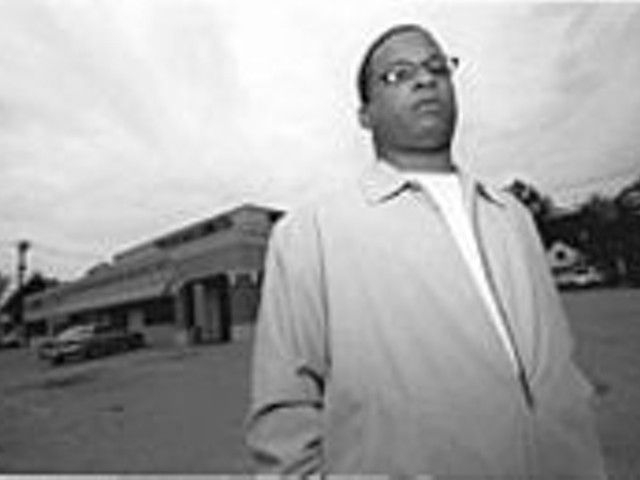First, let us consider this editorial viewpoint:
"Keeping the Cardinals in downtown St. Louis is critical to the city's future. Mayor Francis Slay believes that the departure of the Cardinals would be 'catastrophic' and he has the figures to prove it. A strong economic case can be made for the ballpark and village project."
Now, let us give equal time to the opposite editorial position:
"If the experience of other cities is any indication, the economic benefit to anyone but the owners is limited.... A study prepared for the mayor concluded that ballparks are not economic bonanzas for a city. More important, if other cities' experience is any guide, ballparks are not the catalysts for urban development they're often portrayed to be. A new ballpark will not revitalize downtown."
There you have it, point-counterpoint, the sort of healthy discourse that makes America great. Best of all, you'll be happy to know that these adversaries are apparently willing to set aside their differences and remain quite civil.
At least one would hope so.
After all, both editorials were published in the Post-Dispatch, on the same page, less than 17 months apart. The first editorial appeared on Sunday. The second one was published on June 26, 2000, not exactly ancient times.
St. Louis has the same team, the same downtown, the same problems and essentially the same stadium proposal it had when the Post concluded -- correctly, by the way -- that "a new stadium is not the best and highest use for public money, especially a quarter of a billion dollars." Yes, in case you're wondering, the team's mythical Ballpark Village wonderland had already been unveiled at the time (about two months earlier).
So what cataclysmic event could have produced this editorial pirouette? How did a ballpark that "will not revitalize downtown" suddenly become "critical," not merely to downtown but to the future of the city itself?
A conspiracy theorist might point to Pulitzer Inc.'s having become an owner of the Cardinals eight months ago in an apparent sweetheart deal [Bruce Rushton, "Pulitzer's New Prize," April 4]. At the time, the paper's new editor, Ellen Soeteber, had this to say about how coverage would not be affected:
"I know -- I know -- that there will be absolutely no change or involvement in how we cover the Cardinals, how we cover the stadium issue, the editorial stance we take, which was taken completely separately and completely ignorant of these other developments," Soeteber told the RFT. "I do understand that there are people in the public who might perceive it otherwise, and that's the only level of discomfort that I get, is over the perception that people will have."
It turns out that the Post editorial stance has changed a bit -- roughly 180 degrees, actually -- but it may not be fair to attribute this to the paper's ethically challenged ownership of one of its primary news subjects. After all, the paper's incestuous relationship with the team is nothing new.
You might recall that Pulitzer tried to buy in when the Cardinals' new ownership group arrived in 1995, only to be rebuffed by Major League Baseball because the company owned a stake in the Arizona Diamondbacks. Pulitzer was forced to settle at the time for loaning the Cardinals partners $5 million for their purchase of parking garages, although that didn't keep the team from listing company chairman Michael Pulitzer as a Cardinals owner in its media guide.
Who knows? Perhaps the patron saint of corporate welfare appeared from another world to convince Post editorial writers that everything they knew on the subject of urban economics was wrong. Or maybe it's just a "perception" problem to believe that "the stadium will revitalize downtown" and "the stadium will not revitalize downtown" are actually different points of view.
Who cares? What matters today is that we understand that the nature of stadium-ball is changing as the game gets to the later innings. The Cardinals are mounting intense pressure on politicians, the media and others in the community to view their enrichment with public funds as synonymous with saving downtown.
Incredible. To believe in Ballpark Village, one has to buy all the smoke-and-mirrors claims that, by some strange osmosis, a new ballpark would spawn a huge new market for real-estate, retail and commercial development in the very spot where the old ballpark -- serving precisely the same customers -- did not. One also must accept "guarantees" by the team that make the Kiel Opera House look like a done deal.
Through it all, one truly critical point hasn't changed in the past 17 months, and it won't change in the next 17 months. It is this: The Cardinals don't need the public's money.
The Cincinnati-based ownership group of the Cardinals -- with a collective net worth exceeding $4 billion, according to the St. Louis Business Journal -- could easily afford to build itself a new stadium, just as the San Francisco Giants did, with much success.
The Cardinals owners have never claimed they are unable to finance a new stadium, only that it would be a ludicrous business choice in light of the public largesse bestowed on other teams. Their advocates also like to cite downtown tax abatements and credits or, in the county, handouts to wealthy shopping-center developers (through abuse of tax-increment financing) as evidence that this is just the way things are done in 2001.
No public official has ever suggested that the team needs public help, only that downtown and the city need the team and that, in the current environment of public welfare, it could takes its ball and go to Illinois. No one can plausibly suggest that handing unneeded hundreds of millions to billionaires -- at a time of drastic cutbacks and recession (even before Sept. 11) -- is the right thing to do.
It is not. It's as wrong today as it ever was.
Not even the Post-Dispatch can revise that.





